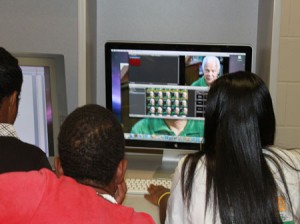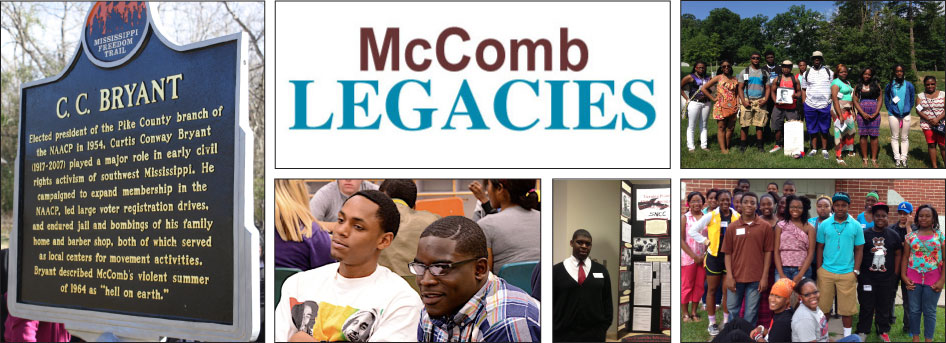Projects
Burglund Walkout Documented by McComb Students
Sixteen McComb students rolled up their sleeves in the summer of 2011 as researchers, historians, and filmmakers to shed light onto our local history. In particular, the students decided to focus on the situations and conditions that caused the walkout at Burglund High School in the 1960s. At the July 18 – 20 workshop, the students compiled a video using oral history interviews performed in the Local Cultures class, documents from the Mississippi Sovereignty Commission, and newspaper articles from the period.
 In an organizational meeting held on July 5, the students visited the Mississippi Sovereignty Commission website, organized and summarized 132 separate primary sources for use in this process, and discussed their thoughts on what they had read.
In an organizational meeting held on July 5, the students visited the Mississippi Sovereignty Commission website, organized and summarized 132 separate primary sources for use in this process, and discussed their thoughts on what they had read.
After reviewing a few of these articles, Dominique Taylor, a junior at McComb High School, stated that looking through these articles made her “recognize what the older people did for us and how it affects our generation.”
LaPorsha Mays, who graduated this year from McComb High, and was accepted to the American Musical and Dramatic Academy in Los Angeles, said, “I think people will benefit from learning about their past. It helps us to see our ancestors’ progress because it helps us to believe that we can make a difference.” When asked what she found most surprising, she responded, “I was surprised to find that there were Caucasians who were also beaten or forced to leave McComb for their support of the African American community.”
Over the course of the three–day workshop, the primary sources from the Mississippi Sovereignty Commission were compared to the interviews conducted by the Oral History Project. Storyboards were created using the videos in combination with the primary source documents. The students planned and created a mini-documentary with a focus on the Burglund walkout–one — of the pivotal moments in the history of the Civil Rights Movement. In addition, several students traveled around McComb in an attempt to “walk-through history.” The pictures and videos they took were included in the film.
McComb’s history and its importance during the Civil Rights Movement should not be forgotten. Whether the history is beautiful or ugly, good or bad, it made us who we are as a people and has had a lasting impact on our nation. As Edmund Burke said, “Those who don’t know history are destined to repeat it.” Thanks to the efforts of a few motivated students, this part of history has been preserved for future generations.
